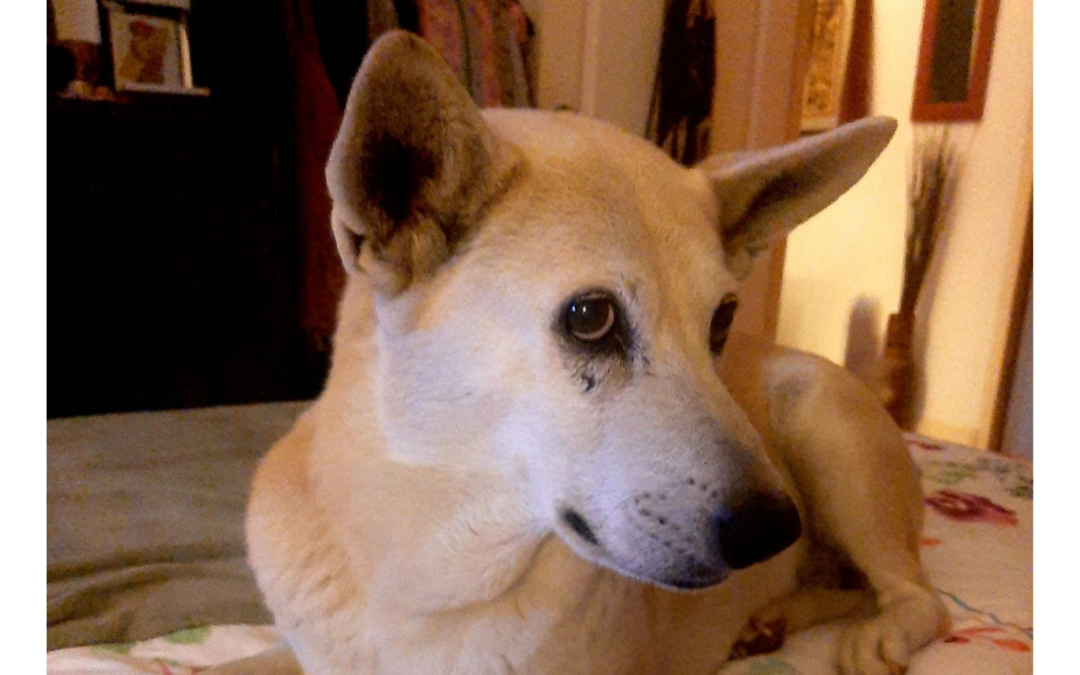Do Dogs Grieve? Although there is little scientific evidence of this as fact, we know that our pets are affected by loss and may experience feelings of sadness and loneliness, just like their human counterparts. By simply showing patience and understanding, you can help your dog cope with their anguish. How we can help them is the more apt question. Animal or human loss will touch us all, we will do much better by caring for each other.
As our followers know, we lost Bolo, our beloved family member, last year, and it has been a painful experience for both myself and Jackie Chan, Bolo’s baby sister. These past months have led me to treat her differently, and here to share some tips on how to help your dog with their grief when they lose their dog companion.

- Spoil them
Give them lots of love, feed them all their favorite foods, including treats of course. Buy them a new bed and/or toy, and give them distractions to keep their spirits up. I give Jackie Chan big bones, and she keeps herself busy for hours on end with burying them and then digging them back up again.
- Exercise
Make sure to get out for your daily walk, or make them longer. Take them to a new spot of interest, or meet up with other friends with dogs. Get those serotonin levels up and stay positive and in shape together.
- Maintain their routine
Whether that means regular feeding, or playtime, keep your normal schedule and the status quo to provide your dog some much-needed stability in what otherwise could be a very disruptive situation.
- Spend quality time together
This is much easier during Covid-19, but make sure you’re there for your pet as much as possible. Even in your own grief, you must remember they’re going through something similar but cannot express it verbally. Read their cues for extra moments they may need, and offer them plenty of love and reassurance.
- Don’t give them too much time alone
If you do need to work or be away from your pet during their grieving process, have a friend drop by, hire a dog walker, or consider doggie day care so they have a connection with someone in the hours you’re gone.
- Socialize them with other dogs
Get them out to see their dog friends. Jackie lights up when she sees a particular couple of dogs in our neighborhood. She absolutely has the best time for even just a few minutes, lifting her mood and gives her a bounce in her step the whole way back home. It’s precious.
- Comfort them
Encourage your dog to join you on the bed, give them a massage and speak softly to bring them calming energy and ease their anxiety and sadness in their time of mourning. Regularly stop throughout the day for an extra pet or cuddle and give praise when they do well.
- Get outside more
Nature is a great healer, so get out and soak it in with your dog. Spend time not only on walks, but in your yard and nearby parks or other serene beautiful spaces. When I’m on my porch, my dog is always close by enjoying the tranquil balance of the outdoors.
- Keep yourself and your home peaceful
Stay calm yourself, our dogs pick up on our energy. We don’t want to transfer our stress onto them, and when we become emotional, our dogs feel it too. Keep your home quiet and clutter-free to avoid confusing emotions for your dog. I play neutral mellow music to keep our home relaxed.
- Keep them occupied
Our dogs are like us in this respect I feel, the more time they have on their hands(or paws rather), the more time they have to fall into depression. This brings up back to walks and playtime, and how important it is to take this special time to grow your bond even further and gain their confidence from you.
Although we will never truly understand what our pets are feeling, we have an innate sense to protect them and want to help them heal when they’ve lost their best friend. If you feel there is something wrong with your dog other than sadness, please bring them to the vet to make sure there is nothing physically going on. Pheromones may help calm a stressed dog, so do ask your vet for options.
Signs in your dog that can be interpreted as grief:
- Withdrawal
- Anxiety
- Loss of appetite
- Negative behavior
- Loss of interest in normal activities
- Searching, crying or pacing
- Change in sleep patterns
- Needing more attention
- A general sad demeanor
For information on the stages of grief, view here:
https://pethelpful.com/pet-ownership/The-Stages-of-Grief-When-Losing-a-Dog


Recent Comments